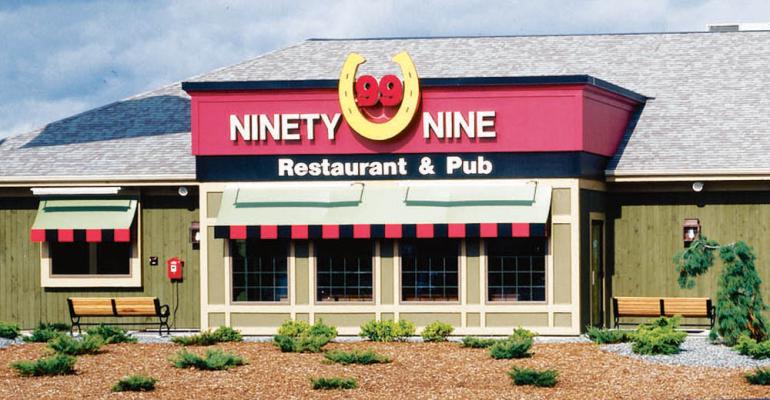 This post is part of the On the Margin blog.
This post is part of the On the Margin blog.
As we noted last month, the merger between J. Alexander’s Holdings Inc. and Ninety Nine Restaurant and Pub would put the title insurance company Fidelity National Financial Inc. in control of the company it spun off just two years earlier.
Not everybody is OK with this. In a letter to the board on Tuesday, Marathon Partners Equity Management, LLC said J. Alexander’s proposed acquisition of 99 Restaurants from Fidelity “is overly accommodating” to the interests of Fidelity and its affiliates.
Marathon also questions the J. Alexander’s board’s ties to Fidelity, suggesting those ties “are hindering the pursuit of alternative options that could potentially result in better outcomes for shareholders.”
“This transaction is amongst the most one-sided, conflicted deals we have seen in 25 years of investing,” Mario Cibelli, managing member at Marathon Partners, said in the letter. “Essentially, the board is recommending shareholders sell control of J. Alexander’s to another entity its board has deep ties to, for no premium, while simultaneously restricting other options available to enhance shareholder value.
“The board’s recommendation for this transaction makes it appear as if [Fidelity] still maintains control over J. Alexander’s despite FNF’s divestiture of the business two years ago.”
Fidelity spun off J. Alexander’s in 2015 as part of what had been a plan to divest itself of restaurants. Fidelity, through subsidiary Fidelity Newport Holdings, owned 99 Restaurants.
In August, J. Alexander’s said it would acquire the 106-unit 99 from Fidelity in an all-stock deal valued at $199 million. J. Alexander’s is creating a new class of stock to pay for the merger. As a result, Fidelity subsidiaries Fidelity Newport Holdings and Fidelity National Financial Ventures LLC, or FNFV, will get 52.5 percent of J. Alexander’s stock.
And Bill Foley, Fidelity’s chairman and a former CKE Restaurants CEO, will join the J. Alexander’s board.
The deal instantly more than doubles J. Alexander’s size — 99 Restaurants generated $306 million in system sales in 2016, for instance. As a much larger, two-chain operator, J. Alexander’s could get more attention from Wall Street.
But Marathon questioned the wisdom of merging J. Alexander’s, based in Nashville, with the primarily Northeast located 99 Restaurants, which has a check average about half the size of J. Alexander’s. Cibelli called them “very different concepts” and noted there will be little in the way of expense reduction given that 99 will continue to operate out of its Massachusetts headquarters.
Marathon also questioned the J. Alexander’s board’s independence, noting that all six of the company’s board members are affiliated with Fidelity or one of its subsidiaries.
And it notes that no special committee was formed to evaluate the deal or consider other alternatives.
As part of the deal, J. Alexander’s agreed to a “no shop” provision that prevents the company from soliciting proposals from prospective buyers. Cibelli said it’s rare for buyers to agree to such provisions.
The deal also relinquishes control of J. Alexander’s with no premium to shareholders. Cibelli said that J. Alexander’s “intrinsic value” is between $13 and $15 a share, much higher than the $11 per share valuation on which the board based the deal for 99.
“We believe the board should delve deeper into the evaluation of strategic alternatives, including a potential sale of the company,” Cibelli said. “We believe such an outcome would likely generate a much higher risk-adjusted return versus the proposed transaction.”
Jonathan Maze, Nation’s Restaurant News senior financial editor, does not directly own stock or interest in a restaurant company.
Contact Jonathan Maze at [email protected]
Follow him on Twitter at @jonathanmaze





